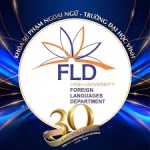Speaker
Description
Accurately assessing students’ writing competencies has become more challenging, particularly in English language university courses, due to the prevalence of Artificial Intelligence (AI) platforms. Traditional writing assessment methods often fail to judge fairly the nuanced understanding required in language learning, especially now when students can utilize AI tools specially designed to assist their writing. This paper examines innovative assessment techniques designed specifically for university-level English language courses, aiming to ensure that evaluations would reflect students’ true ability in a fair and effective manner. According to the study, writing assessment methods that prioritize linguistic creativity, critical thinking, and authentic language use were adopted. Additionally, the research emphasizes the importance of incorporating AI literacy into the English language education at university level. Lecturers can support students in developing a responsible approach toward AI usage by teaching them about the ethical use of AI as well as academic integrity, while guaranteeing that their writing proficiency is accurately evaluated. By implementing these revised writing assessment strategies, educators could maintain the fairness of English language evaluations at university level, ensuring that student competencies are evaluated impartially and effectively in a time when artificial intelligence is becoming more and more common.
Key words: writing assessment, AI, student evaluation, academic integrity, language learning

